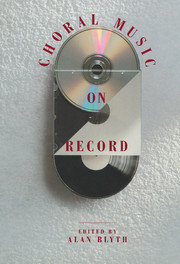Book contents
- Frontmatter
- Contents
- Preface
- Monteverdi: Vespers (1610)
- J.S. Bach: St John Passion
- J.S. Bach: St Matthew Passion
- J.S. Bach: Mass in B Minor
- Handel: Messiah
- Mozart: Requiem Mass
- Haydn: The Creation
- Haydn: The Seasons
- Beethoven: Missa Solemnis
- Mendelssohn: Elijah
- Rossini: Stabat mater Petite messe solennelle
- Berlioz: Grande Messe des Morts Te Deum L'Enfance du Christ
- Verdi: Requiem Mass
- Brahms: A German Requiem
- Fauré: Requiem
- Elgar: The Dream of Gerontius
- Walton: Belshazzar's Feast, Tippett: A Child of Our Time, Britten: War Requiem
- Stravinsky: The Wedding Symphony of Psalms
- Janáček: Glagolitic Mass
- Discographies
- Index
Rossini: Stabat mater Petite messe solennelle
Published online by Cambridge University Press: 02 December 2009
- Frontmatter
- Contents
- Preface
- Monteverdi: Vespers (1610)
- J.S. Bach: St John Passion
- J.S. Bach: St Matthew Passion
- J.S. Bach: Mass in B Minor
- Handel: Messiah
- Mozart: Requiem Mass
- Haydn: The Creation
- Haydn: The Seasons
- Beethoven: Missa Solemnis
- Mendelssohn: Elijah
- Rossini: Stabat mater Petite messe solennelle
- Berlioz: Grande Messe des Morts Te Deum L'Enfance du Christ
- Verdi: Requiem Mass
- Brahms: A German Requiem
- Fauré: Requiem
- Elgar: The Dream of Gerontius
- Walton: Belshazzar's Feast, Tippett: A Child of Our Time, Britten: War Requiem
- Stravinsky: The Wedding Symphony of Psalms
- Janáček: Glagolitic Mass
- Discographies
- Index
Summary
Even more than Verdi, Rossini has suffered from the prejudice which would have us believe that the sacred music of an Italian opera composer will be compromised both by its worldliness and by its lack of real scholarship. Down the years, his not entirely well-founded reputation as an unschooled, cynical, bon viveur has made it difficult for the listening public and a good many performers to treat his sacred music with the consideration and care it invites. On record, the result has been depressing cycles of performances that enact and re-circulate assumptions about Rossini's competence and sincerity that bear little relation to the letter or the spirit of the two fine sacred works he wrote in the years following his retirement from theatre composition.
When the Abbé Gallet de St-Roch put the usual ritual questions about belief to the dying Rossini in November 1868, Rossini is said to have replied: ‘Would I have been able to write the Stabat mater and the Messe if I had not had faith?’ Outwardly, he was not a religious man; his faith was neither formal nor institutionalised. Privately, he might well have nodded agreement at the words of his famous contemporary, the poet Tennyson, in his In Memoriam:
There lives more faith in honest doubt,
Believe me, than in half the creeds.
The spectre of doubt, expressed as a kind of serene anxiety, is certainly there in parts of the Petite messe solennelle, written in 1863–4, not least in the work's quizzical conclusion. Equally, Rossini was a man in whom the primary affections and loyalties, both sacred and familial, were strong; and it is these primary forms of belief that have often inspired some of the most personally affecting religious art.
- Type
- Chapter
- Information
- Choral Music on Record , pp. 164 - 174Publisher: Cambridge University PressPrint publication year: 1991



